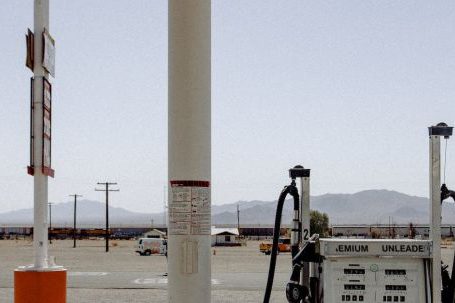The search for offshore petroleum resources has long been recognized as a complex and challenging endeavor. With the depletion of onshore reserves, countries around the world have turned their attention to the vast potential lying beneath the ocean floor. However, the exploration of offshore petroleum reserves requires substantial investment, advanced technology, and expertise. In order to successfully tap into these resources, collaborative efforts between nations, companies, and research institutions have become essential. This article explores the significance of collaboration in offshore petroleum exploration and highlights some notable examples of global cooperation in this field.
Sharing Knowledge and Expertise: The Key to Success
Offshore petroleum exploration involves a range of specialized knowledge and expertise. From geologists and geophysicists to engineers and technicians, a diverse set of skills is required to navigate the complexities of underwater drilling operations. By collaborating with other countries, companies, and research institutions, nations can pool their resources and knowledge, ultimately increasing the chances of success.
One example of successful collaboration in offshore petroleum exploration is the joint efforts of Norway and Brazil. Both countries have extensive offshore reserves and a long history of oil exploration. By sharing their knowledge and experience, they have been able to improve drilling techniques, minimize environmental risks, and enhance safety standards. This collaboration has not only benefited both countries but has also set a precedent for other nations to follow.
Technology and Innovation: Advancing the Industry
The offshore petroleum industry is driven by technological advancements. From advanced drilling techniques to sophisticated seismic imaging, new technologies have revolutionized the way oil and gas reserves are discovered and extracted. Collaborative efforts play a crucial role in advancing these technologies and driving innovation in the industry.
One notable example of collaborative technology development is the partnership between the United States and Canada in the development of subsea robotics. These remotely operated vehicles (ROVs) are used for a wide range of tasks, including underwater inspections and maintenance operations. By sharing their expertise in robotics and investing in joint research projects, these two countries have been able to push the boundaries of ROV technology, making offshore petroleum exploration safer and more efficient.
Environmental Protection: A Global Responsibility
In recent years, there has been a growing emphasis on sustainable and environmentally responsible practices in the offshore petroleum industry. Collaborative efforts are essential in developing and implementing effective environmental protection measures.
The North Sea is a prime example of successful collaboration in environmental protection. The countries bordering the North Sea, including Norway, Denmark, the United Kingdom, and the Netherlands, have established joint initiatives to monitor and mitigate the environmental impact of offshore drilling. Through shared research, data exchange, and regulatory cooperation, these nations have been able to minimize the impact on marine ecosystems and ensure the long-term sustainability of offshore petroleum operations.
Conclusion: A Shared Vision for the Future
Offshore petroleum exploration is a global endeavor that requires collaboration on multiple fronts. By sharing knowledge and expertise, advancing technology and innovation, and protecting the environment, nations can work together towards a sustainable and prosperous future in the offshore petroleum industry. Collaborative efforts have the potential to not only unlock the vast potential of offshore reserves but also to ensure that this valuable resource is extracted responsibly and for the benefit of all. As the demand for energy continues to rise, collaboration will remain crucial in meeting the world’s energy needs while safeguarding our planet for future generations.




